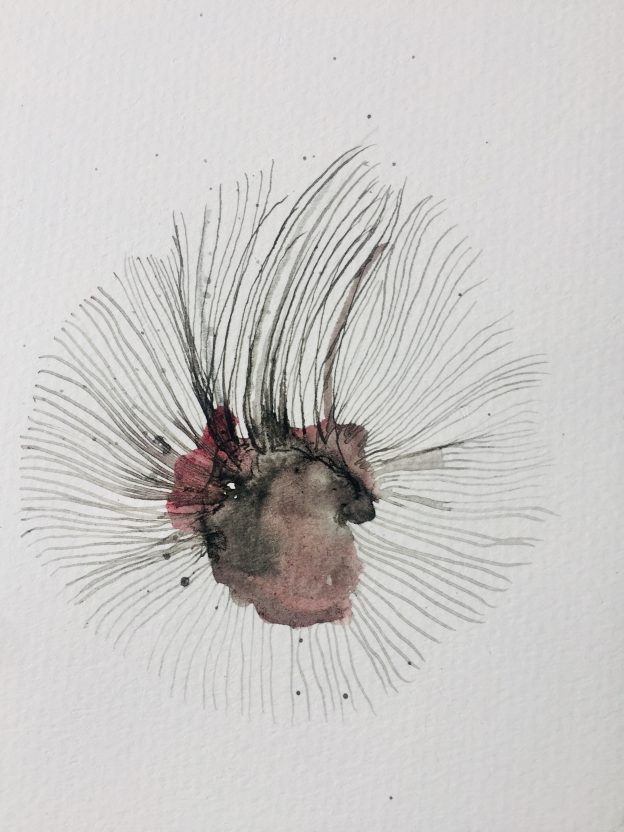Dates: Oct 17 / Nov 7 / Nov 22 / Nov 28
Location: Research Station, Willem de Kooning Academy, Wijnhaven 61, Ground floor and V2_ Lab for the Unstable Media (film screening), Eendrachtsstraat 10, Rotterdam
Admission: Free; the presentations are open to the public
Lecture # 1: Thurs Oct 17, 19.30 – 21.30 hrs
Surfing the Semiosphere: Exploring New Ways to Navigate our Worlds
Judith van der Elst, anthropologist/archeologist
Location: Research Station, Willem de Kooning Academy
Master class # 2: Thurs Nov 7, 19.00 – 21.30 hrs
BioTRANSlab: Hacking Science for a Transfeminism Narrative
Paula Pin, artist, trans-feminist performer, bio-hacker and initiator of BioTransLab
Location: Research Station, Willem de Kooning Academy
Film Screening # 3: Fri Nov 22, 19.00 – 21.30 hrs
Film screening Donna Haraway: Story Telling for Earthly Survival (Fabrizio Terranova, 2016)
Guests tbc. In collaboration with Erasmus University College and V2_Lab for Unstable Media, Rotterdam.
Location: V2_ Lab for the Unstable Media
Book Talk # 4: Thurs Nov 28, 19.00 – 21.30 hrs
Field Essays: Éloj Kréyol
With: artist/researcher Sophie Krier, designers Dimitri Zephir and Florian Dach and Rolando Vázquez, associate professor in sociology at University Utrecht/University College Roosevelt.
Location: Research Station, Willem de Kooning Academy
Hereby we cordially invite you for the event series Learning With Others. As part of the seminar ‘Contemporary Issues in Art and Design Education’ we present a series of public events related to examining the role of experimental artistic and multidisciplinary learning practices. Hereby we aim to introduce students into diverse conversations on problematizing the structures and ecologies of knowledge production based on the human-centric Enlightenment paradigm. Today’s struggle to comprehend the increasing social complexities and ecological uncertainties, as well as the long-term implications of technology on the lives of humans and multiple species, calls for re-evaluating current habits of sense making about what we see, feel and know. Post-humanist discourse in affiliation with colonial studies, assemblage, multispecies and feminist paradigms, have a potential to see a greater image of today’s complexities, and call for new paradigms of interpreting, complicating and disturbing the very foundations of knowledge production constructed by Western scientific and philosophical thought.
The first lecture Surfing the Semiosphere by Judith van der Elst, explores new ways to navigate our worlds. Birds, not only do they communicate vocally, they can use their feathers to send messages, as gesture but also as sound during flight. Humans talk; we speak different languages, and yet we employ many other ways, such as gestures, to get messages across. This is an enriched sensory and multimodal repertoire that reaches beyond the dominant western knowledge system. Rooted in the fields of social- and bio-semiotics as well as in experiences in the outdoors, Judith van der Elst explores different ways to categorize our worlds and will argue that in order to move beyond our current institutional boundaries, we need a different framework in which these perceptions and categories can be grounded and understood. Getting (back) in touch with our sensory selves can help us navigate our current predicament of changing weathers. During her talk she will guide us into shifting scales and perspectives, serving as a springboard for designing new – embodied – learning environments from which different knowledge can be created and emerge.
Judith van der Elst is an archaeologist and creative entrepreneur currently residing on the EU continent. She received her PhD from the University of New Mexico (USA). With a passion for teaching and learning in the land, she currently leads a semi-nomadic lifestyle to explore the possibility of new rural-based ‘laboratories.’ As a creative practitioner she has long been interested and has used emerging, spatial technologies such as GIS and remote sensing. Increasingly she focuses on near-surface/ambient sensing /biosensors- to expand our experiential and embodied learning and comprehension toolkit in order to access different worlds in our sphere. No longer just a personal desire, she believes a new way of doing research and practice focused on embodied knowledge is necessary to face our future challenges toward a just and healthy world. She has explored this approach through prior transdisciplinary collaborations, among others with Urbino University, Aalto University Media Lab: Systems of Representation, and BIoArt society Finland.

